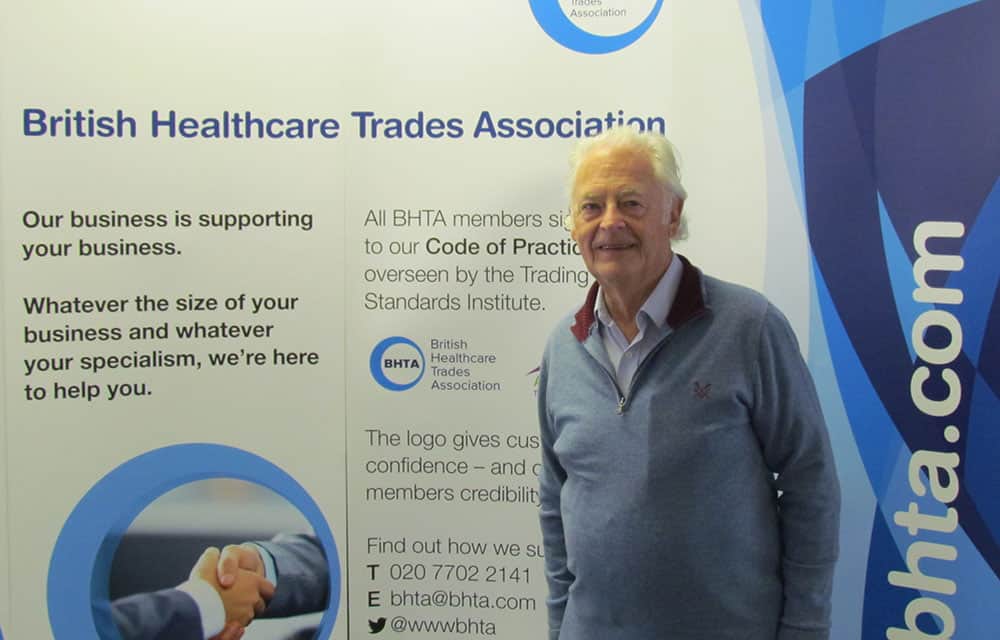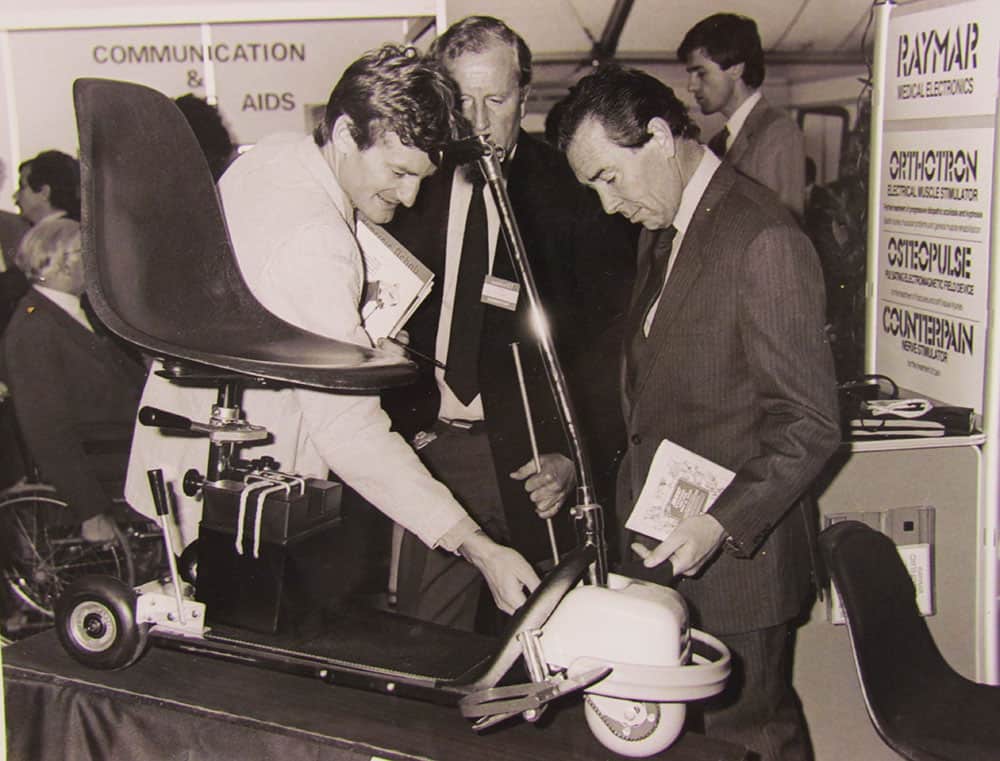Comment: Industry should move to ‘Specsavers model’ to improve scooter safety and selling practices says former BHTA Director General

With fresh mobility scooter incidents making headlines and more calls for Government legislation, the British Healthcare Trades Association’s former Director General has called for the industry to take steps to ensure safety before Government intervention.
Ray Hodgkinson MBE and his business partner Martin Corby introduced the first mobility scooter to the UK market through his company Raymar over four decades ago, bringing over the three-wheeled Amigo Scooter from America in 1978.
Since that time, Ray has seen the evolution of the product and its popularity domestically, growing into a multi-million-pound segment of the mobility market today.

As the products’ popularity has grown over the decades, with more mobility scooters in circulation than ever before, so too has the number of accidents and, worryingly, fatalities, resulting in increased media and public scrutiny.
Highlighting some of the key issues surrounding mobility scooters, Ray commented: “The danger with mobility scooters is that there isn’t proper training, the control of them into the marketplace needs to be tighter, retailers need to have greater knowledge on people’s conditions, and users themselves need to be acutely aware that they are sitting on something that can be lethal if not driven properly.”
As scrutiny continues to rise, Ray says the industry is at a point where it must take proactive measures to address public concerns before legislation is introduced, emphasising the need for qualifications.
“I hear calls for regulations but I believe the industry itself needs to get its head around these issues and take necessary steps before it comes to Government intervention,” he told THIIS.
“There should be qualifications required for selling these products. Drawing a comparison to the spectacles market, when people go in for glasses, someone qualified will assess that individual and give them a prescription. I think the same needs to be introduced for mobility scooters and really all assistive technology.
“I think if you have someone who is qualified and has prescribed a particular type of mobility vehicle following an assessment, then the consumer should be free to go anywhere they want to buy the product, be it in-store or on the internet.”
For many dealers, whilst there may be no formal, recognised qualifications, many face a situation of assessing customers before losing the sale to internet-sellers, where prices can often be comparatively cheaper to their bricks and mortar counterparts who have higher overheads.
Ray argues however that the problem lies in offering assessments for free, both devaluing assessments in the eyes of consumers and restricting bricks and mortar retailers from being able to provide extra value offers.
“Some consider the idea of qualifications, assessments and prescriptions becoming a barrier for selling, when in my view, it is actually a tool for selling. If retailers were to put a value on their assessments, they could then use it as a sales tool for incentivising a customer to shop with them. For example, if a retailer was to offer an assessment and prescription for £50, they could then offer the customer a £50 or £100 discount on any scooter purchased from them,” he explained.
“This would not only mean customers need to come into a physical store to be assessed but it also gives retailers an opportunity to offer more value to customers and educate them about the importance of aftersales care and support as well.”
Additionally, Ray suggests that wheelchair services could also play a role in helping transform the mobility scooter market.
“Wheelchair services could and should play a big role in helping bring about change in the mobility scooter sector. Currently the 150 or so wheelchair services need assurance that they can safely signpost retailers to people who don’t qualify for their assistance (or who would benefit from a mobility scooter rather than a wheelchair). Having qualifications that prove a proper assessment will be provided should help to overcome that,” elaborated Ray.
“It is a fairly wide picture but it could help the mobility retail sector become more professional whilst also helping to address a lot of the safety issues that keep making headlines and keeping customers safe.”
Introducing qualifications for sellers will help deliver more professionalism says Ray, noting that whilst the industry has grown tremendously over the past 40 years, there is still a need for further development.
“I am not being critical of the industry as it has grown incredibly over the decades, particularly with the introduction of the BHTA’s Code of Practice, and delivered incredible freedom and independence to so many people. But there is still more work to be done. Look at what chains like Specsavers have done in the spectacle market for example – modern, smart conditions with trusted, qualified individuals. I think our industry has a fantastic opportunity to move more in that direction and that’s not just on the mobility scooter front, but across all assistive technology,” finished Ray.
“Eventually, there may well come a point where you will not be able to sell in this industry without being qualified and the industry should really look to do this itself.”
In the February issue of THIIS Magazine, Ray recounts his tale of bringing the first mobility scooters to the UK markets and discusses how the industry has evolved, as well as where it is heading for the future. Sign up to receive your issue.


